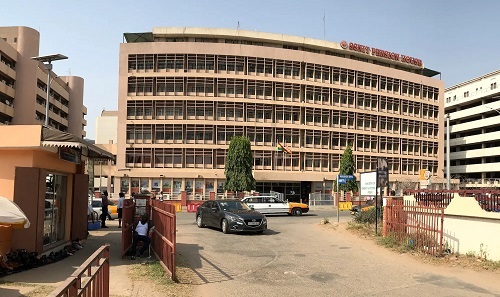
Modern pension administration dated back to the 19 Century in Germany, when the Bismarckian Social Welfare System was introduced. Since then, pension has spread across the globe, but largely for the formal sector. As pension aims at alleviating post retirement poverty, it is of intrinsic value that all persons, both in the formal and informal sectors access pension scheme(s) for a secured financial future. Recently, governments around the globe have realised the urgent and important need of extending pension systems to the informal sector, and have accordingly designed a range of different policy initiatives to address post retirement poverty.
Ghana, like many other African and developing economies, has most of her people in the informal sector, estimated to be about 85 per cent, but unfortunately only about four per cent contributes to a pension scheme. The remaining 81 per cent are without any formal pension scheme. As a policy response, the Government in 2008 promulgated a new Pension Act to bridge the gap in the PNDC Law 247, which only catered for those in the formal sector. The new Act 766 introduced additional pillars to cater for workers in the informal sector. In view of this, the country now operates a three-tier pension scheme, with the first and second tiers being mandatory for workers in the formal sector and the third mainly targeting those in the informal sector.
Research indicates that since the operationalisation of the Act 766 in 2010, participation of the informal sector remained low, calling for a more robust, urgent and aggressive pension awareness and participation approach. Interestingly, only four per cent of workers in the informal sector have registered with a pension scheme, and are actively contributing. Legislative Instrument (L.I.) Required to Unionise Informal Sector Unionisation of informal workers is a key requirement, if the nation should effectively administer pensions in that sector. Mr Enoch Okomfo Okonah, an Economist and Policy Analyst, has, therefore, called for a Legislation Instrument that would ensure traders and artisanal workers are under one umbrella.
The formation of associations and unions in the informal sector is necessary to give the sector a national recognition and simplify the registration of workers to benefit from pension schemes. “Such associations can register for group pensions for members to also benefit from central government stimulus packages and other incentives,” he stated. Mr Okonah noted that although the majority of Ghanaians worked in the informal sector, few of them were registered on pensions, hence the need for a legislation to make it mandatory for all to register. NPRA Five- Year Strategic Plan The National Pensions Regulatory Authority (NPRA) was set up by the National Pensions Act, (Act 247), 2008, to provide pension reforms in the country by introducing the Tier Three pension scheme.
It also oversees the administration and management of registered pension schemes of trustees, including the Social Security and National Insurance Trust (SSNIT). Mr William Ohene-Adjei, the Bono, Bono East and Ahafo Regional Manager of the NPRA, said the Authority had developed a five-year development plan and implementing same to increase enrolment of informal sector workers from the current four per cent to 40 per cent in the next five years. To achieve this, NPRA is embarking on a vigorous nationwide public education and sensitisation campaigns to drive the sector towards pension products.
For the campaign, the Authority deploys personnel to churches, mosques, marketing centres, bus terminals and lorry stations to sensitise the public on the relevance and benefits of pensions. However, despite the campaigns, the public response rate remains low. Mr Ohene-Adjei noted that as the engine of growth and development, the private or informal sector contributes between 75 and 85 per cent of the nation’s workforce but expressed regret that only a few are registered onto pension schemes. “That’s why we have to re-focus and redirect attention to the informal sector to empower workers to understand the essence and relevance of joining pension schemes in their own interest,” he said. The Authority had strengthened collaboration with religious bodies and traditional authorities to achieve that, he said, adding: “Last year we were able to visit and intensify pension education in churches and local communities to inspire the workers to register and join”.
Informal sector pension schemes remained flexible and beneficial as contributors had savings and retirement accounts and could withdraw some deposits after five years of contributing to their savings account. The can also contribute any amount depending on their financial strength to provide them security on retirement. The Way Forward Clearly, pensions provide and guarantee sound financial security for both formal and informal sector workers and everybody must develop interest and register to join these schemes.
To build the interest of the informal sector, a regional based micro-pension licensing regime is needed where a corporate trustee is licensed and registered to operate within the jurisdiction of a single region. Alternatively, the NPRA can also license corporate trustees solely for the informal sector pensions. Unionisation of the sector is also essential so that all the workers would be recognised and registered onto a pension scheme. Currently, some pension products look unattractive to arouse the interest of informal sector workers, thus the need to design products to allow the sector to easily relate to and own.
A corporate agency approach has also worked effectively and helped improve informal sector enrolment onto pension schemes in other countries. Under this approach, a company or an institution contracts another company or agency to represent it in a particular market segment. Many insurance companies use this approach to enter markets, which are difficult to penetrate. A similar approach could be used for corporate trustees to appoint agents to represent them in areas where they are not present. However, a strict guideline is required to regulate, monitor and supervise the operations of these corporate agents in order to minimise embezzlement and abuse of the system.
BY DENNIS PEPRAH




